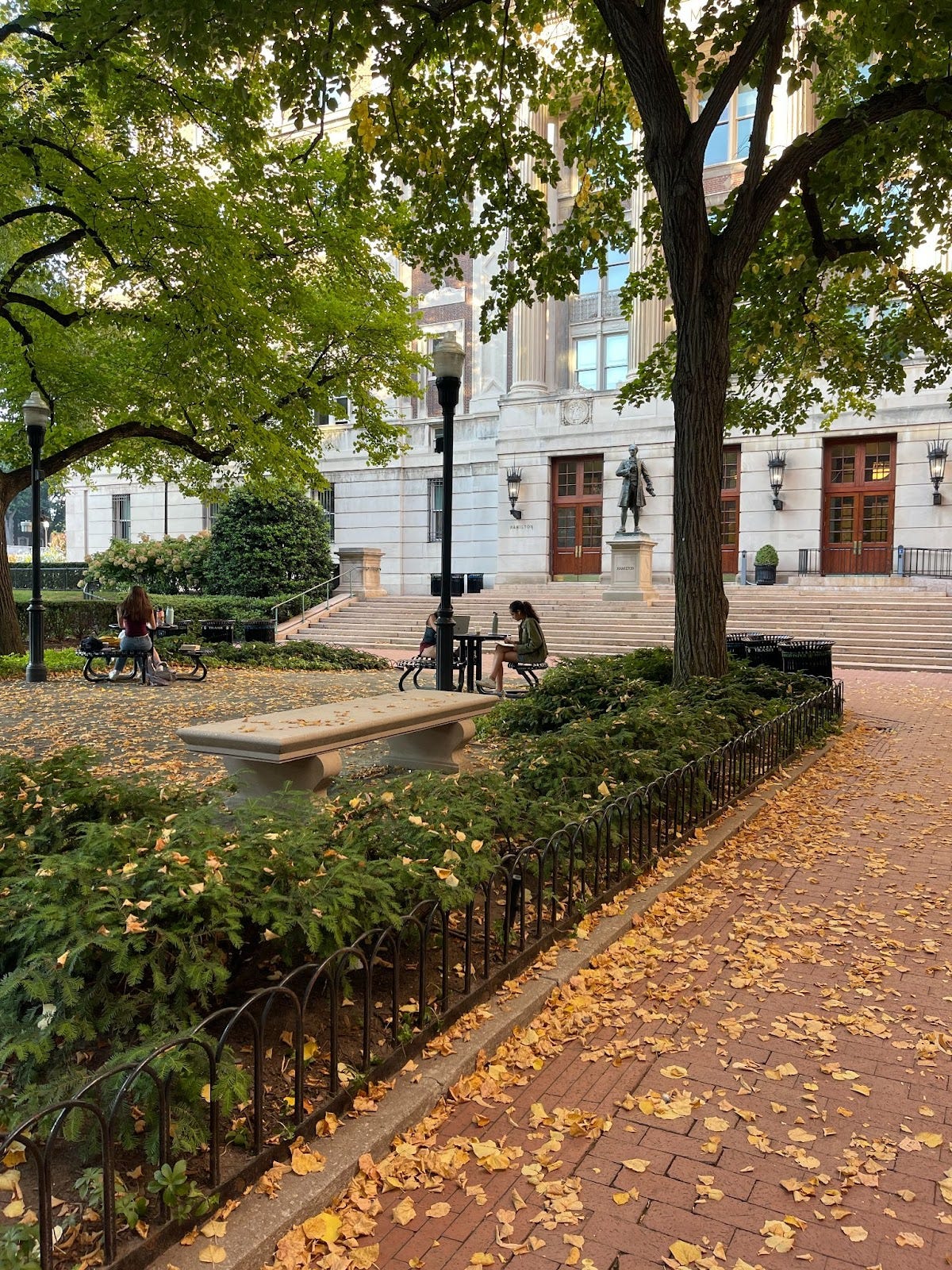A Requiem to the Concentration
The concentration system embodies the liberal arts education Columbia College claims to foster. Forcing students to major doesn’t.
Columbia College is full of quirks and unique procedures, like the swim test and the physical education requirement. One of the hidden gems of the Columbia College experience, though, used to be the fact that students could graduate with just a concentration.
In 2023, Dean Josef Sorett and Dean of Academic Affairs Lisa Hollibaugh announced the termination of the concentration in an email, introducing the minor as its replacement. While matriculated students at the time of announcement may still declare a concentration, students starting in the Class of 2028 will not have this opportunity. They must take one or more majors to graduate.
The stated purpose for removing the concentration was to “create greater distinction” between the major and a secondary program of study, the new minor. Indeed, Spectator reported last November that 14 of the 20 most popular concentrations at the College and School of General Studies exceed the recommended credit limit for new minors (20 credits). Some concentrations require only a couple of classes fewer than their corresponding major, which for some departments means a heavy course load. In particular, the economics concentration, one of the most popular, requires more credits than a third of majors, including political science, sociology, and philosophy.
But there are benefits to having concentrations that fit neatly between the more substantive major and the less substantive minor. Students who entered Columbia before or during the 2023-2024 academic year may graduate from Columbia with only one concentration and no majors, an ideal system for students with a wide variety of academic interests. The concentration system allows students to be degree-educated in one subject while having the freedom and space to pursue other interests, explore new ones, and create a more well-rounded and fulfilling experience at Columbia.
Columbia College offers over 80 programs of study—why should students feel restricted from exploring their interests because they are required to select a major? The new policy forces students who would otherwise choose a concentration to take more classes in one subject area. The opportunity cost is valuable classroom experience in other disciplines.
The removal of concentrations makes even less sense when considering that Columbia College students do not declare their major until their sophomore spring. The message of this practice is clear—students do not have to decide on their program of study until then, and they should use their first three semesters at Columbia to take Core and explore elective courses in different programs of interest. It took me well over a year to arrive at my decision to concentrate in economics and German. I took classes in math, computer science, psychology, and neuroscience before figuring out my preferred academic interests.
I have the opportunity to study economics and German today largely thanks to the concentration system. Before I settled on these two concentrations, I took many courses that could not be counted towards either program of study. But now in my senior year, every course counts—I have room for only one or two electives in my spring semester schedule. If I were required to choose a major in German or economics, I would almost certainly need to resign one of the two subjects to a minor, if not dropping one entirely.
I would not have the freedom that I currently have to balance coursework between both subjects evenly, and I would be forced to place more emphasis on either economics or German. For a liberal arts university that seeks to broadly educate students in a wide range of subjects, it is paradoxical for Columbia to force its students to prioritize one subject over another.
In the Core Curriculum, students are pushed to explore areas that they would not otherwise study, while retaining flexibility over what classes students take for the science and Global Core Requirements. The Core’s structure sends a message about the kind of liberal arts curriculum Columbia students should mirror in the rest of their studies—one that is dynamic, broad, and diverse.
Some students may have heavy prerequisites and little chance for elective classes, but the majority of students benefit from the system of structured exploration that concentrations allow for. We came here to learn, broaden our perspectives, be academically stimulated, and be surprised. Columbia’s choice of a policy that moves away from their own core academic tenets is surprising and confusing.
Bringing back concentrations would allow students to explore a wider range of subjects, but it also upholds the ideals of a true liberal arts education—an education Columbia claims to value.
Mr. Ketcher is a senior at Columbia College studying economics and German and a staff editor for Sundial.



